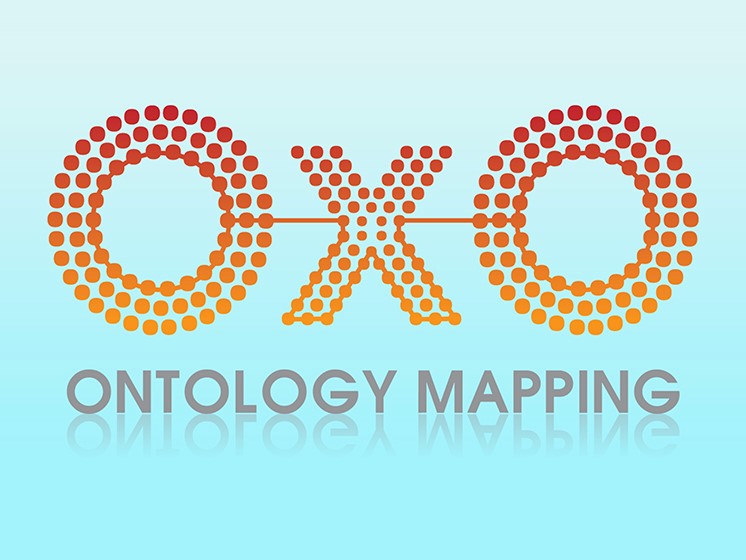EMBL-EBI and the Pistoia Alliance are enhancing data discoverability for pharmaceutical R&D
Scientists working in many sectors, disciplines, countries and languages use different types of data about drugs and diseases for their research. Discoverability is a perpetual challenge.
To make it easier for researchers everywhere to find the information they need, data scientists use ontologies to define and classify terms, concepts and relationships. Ontologies also make it possible to link relevant datasets, even if they were produced in entirely different fields. That’s good for data integration, and for serendipitous discovery.
EMBL-EBI’s Samples, Phenotypes and Ontologies team is in high demand, working on integration projects like Open Targets and BioSamples to make molecular data Findable, Accessible, Interoperable and Reusable (FAIR). Its latest collaboration, the Ontology Xref Service (OxO), aims to help users map ontologies to one another.
FAIR data
The FAIR data movement aims to make research data Findable, Accessible, Interoperable and Re-usable. It has gained momentum in the life sciences, where hundreds of thousands of scientists throughout the world are generating diverse datasets of all sizes. FAIR data articulates the central needs of data-driven research, as access to accurate, up-to-date information is required to formulate plausible hypotheses.
What are ontologies?
Ontologies are formal collections of terms, structured in a hierarchy to represent knowledge. That might be about, for example, symptoms, treatments or dosages. Ontologies allow you to be more precise in the way you annotate (label) data, which makes it easier for you to exploit it and combine it with knowledge from very different domains. That opens up new possibilities for analysing and visualising large datasets.
Ontologies resolve ambiguities, for instance when many datasets are pulled together from different sources but each one has a different heading for ‘disease symptoms’. Using ontologies relates all those different headings to one another.
Ontologies are the touchstone of data integration, and there are many of them in biomedical research.
The Ontology Mapping Service
EMBL-EBI is on a mission to make biological data discoverable and available to scientists everywhere – and ontologies are the common thread running through this work. The Pistoia Alliance is collaborating with EMBL-EBI on OxO, a prototype data service, to help companies map their own ontologies with those in the public domain.
The OxO makes it easier to discover ‘cross-ontology mappings’, which make it possible to combine datasets that are labelled in different ways. Even if different standards are used to annotate datasets, they can still be made interoperable through ontology mapping.
“Groups are increasingly looking to bridge the gap between
public and clinical data.”
Companies can use the public-domain ontology mappings in OxO to bridge the gap between public and private research data.
“The Ontology Xref Service allows companies to map their own, private ontologies to public-domain ontologies for drug discovery,” explains Simon Jupp, Project Lead for ontologies at EMBL-EBI. “High-quality mappings between the various disease and phenotype ontologies are in demand for translational research. That’s because groups are increasingly looking to bridge the gap between public and clinical data.”
A Pistoia Alliance project
The Pistoia Alliance, a not-for-profit alliance of life science companies and academics, aims to lower barriers to innovation – so naturally, EMBL-EBI is a partner. The OxO-Pistoia project is just one Pistoia Alliance collaboration that builds on work carried out by the Parkinson team and others in the Open Targets and CORBEL projects.
“The OxO project extends the public ontology services on offer at EMBL-EBI,” says Helen Parkinson, who leads the Samples, Phenotypes and Ontologies team. “Because it’s a Pistoia Alliance collaboration, we can evaluate and publish the specific requirements of industry, and indeed the wider scientific community, and act on our findings. That’s good for science because we know the outcomes will benefit research and stimulate innovation.”
Ontology Xref Service: OxO
OxO is a service for finding and storing mappings (or cross-references) between terms from public ontologies, vocabularies and coding standards. OxO imports mappings from a variety of sources, including:
- mappings embedded in ontologies from the Ontology Lookup Service
- curated ‘mapping sets’
- mappings predicted mappings from algorithms
Customised Ontology Services
EMBL-EBI provides tailored support for companies that use public ontology services (https://www.ebi.ac.uk/spot/ontology/) through EMBL’s technology transfer partner, EMBLEM (www.embl-em.de).
About the Pistoia Alliance
The Pistoia Alliance is a not-for-profit alliance of life science companies, vendors, publishers, and academic groups that work together to lower barriers to innovation in R&D. Its projects transform R&D innovation through pre-competitive collaboration. It brings together key constituents to identify the root causes that lead to R&D inefficiencies, and develops best practices and technology pilots to overcome common obstacles. Pistoia Alliance members collaborate as equals on open projects that generate significant value for the worldwide life sciences community.
EMBL Press Contact
Iris Kruijen – Press Officer
This article was originally published on EBI News

